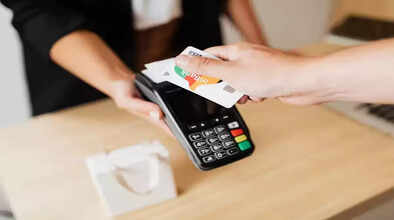Credit card fraud: These 5 powerful tricks will protect your hard-earned money from hackers for a lifetime!

To avoid credit card fraud, follow these 5 essential tips: never share OTPs with anyone. Use only official apps and websites. Only obtain the number from your bank. Avoid unofficial apps. Set transaction limits.
People are now being defrauded through credit cards, but the methods and methods of fraud vary. Cases of credit card fraud are increasing rapidly, especially in cities where people increasingly use online banking. While the RBI has issued several guidelines to prevent such frauds, lack of awareness often leaves people vulnerable. The government is taking steps to strengthen cybersecurity, including the launch of the helpline 1930. But if you have a credit card and want to avoid being scammed, you need to remember a few things about your money for life.
5 Money Lessons You Can Learn
1. Never Share Your OTP
It often happens that you're asked for your OTP via phone or text message, and you give it away, falling for the other person's words. This is where you make a mistake and lose all your money. The truth is, even bank employees don't ask for OTPs, as the RBI recommends.
2. Visit the App or Website Yourself
To safely activate your credit card, users should use the bank's official app or website directly. Trusting an unknown caller or link is risky. Yes, your data and money remain safe when you activate it yourself.
3-Get the number from the official website
Always use the number listed on the bank's official website for any banking-related needs. Fake numbers appearing on Google or other search engines increase the risk of fraud. Yes, only a number obtained from the authentic website is safe and reliable.
4-Don't download unofficial apps
Never download unofficial apps recommended by strangers. Such apps can allow fraudsters to infiltrate your mobile phone and steal personal information and banking details. So, always install the bank's official app.
5-Set a transaction limit
To avoid online fraud, be sure to set a transaction limit on your card. For example, setting a limit of ₹20,000 will immediately alert you if a transaction exceeds the limit. This allows you to block your card in time for suspicious transactions and avoid losses.
Key Tips to Avoid Credit Card Fraud
What is credit card fraud?: It's a type of cyber fraud where fraudsters pretend to call the bank and steal money by obtaining OTP or other information. Such cases have become commonplace as credit card usage is increasing. According to the RBI, millions of people fall victim to such frauds every year.
How to Avoid It?: Fraudsters create and sell fake credit cards, so always be alert. If you receive a call, verify it with your bank. Cyber police and helpline 1930 help in such cases.
Cyber Safety with Digital India: The rise of digital banking has also led to an increase in fraud, with more cases in cities like Delhi and Mumbai. The government is emphasizing cyber safety with Digital India. However, this case teaches us that even educated people can fall prey to fraud if they are not careful.
Police and Legal Aspects: Police traced the trail, which shows that investigation is possible, but not reporting it promptly makes it difficult. In India, such frauds can be punished under the IT Act.
Future: Such frauds are increasing, so banks are introducing new security features, such as two-factor authentication. It is important to raise public awareness.
Yes, this case clearly shows that even a small mistake can lead to significant losses. Everyone should adopt these lessons and never share information on unknown calls. (Note: This news is based on general information.)
5 FAQs
Q1. What is credit card fraud?
Credit card fraud is a cybercrime in which fraudsters impersonate banks and steal money by obtaining OTPs or personal information.
Q2. Is sharing OTPs safe?
Never share OTPs with anyone. Even bank employees do not ask for OTPs.
Q3. How to secure credit card activation?
Activate your card only through the bank's official app or website; don't seek help from a caller.
Q4. How to get the correct bank number?
Always get the number from the bank's official website; don't rely on Google or other sites.
Q5. How to increase the security of online transactions?
Set a transaction limit on your card. An alert will be sent if the balance exceeds the limit, and the card can be blocked if necessary.

